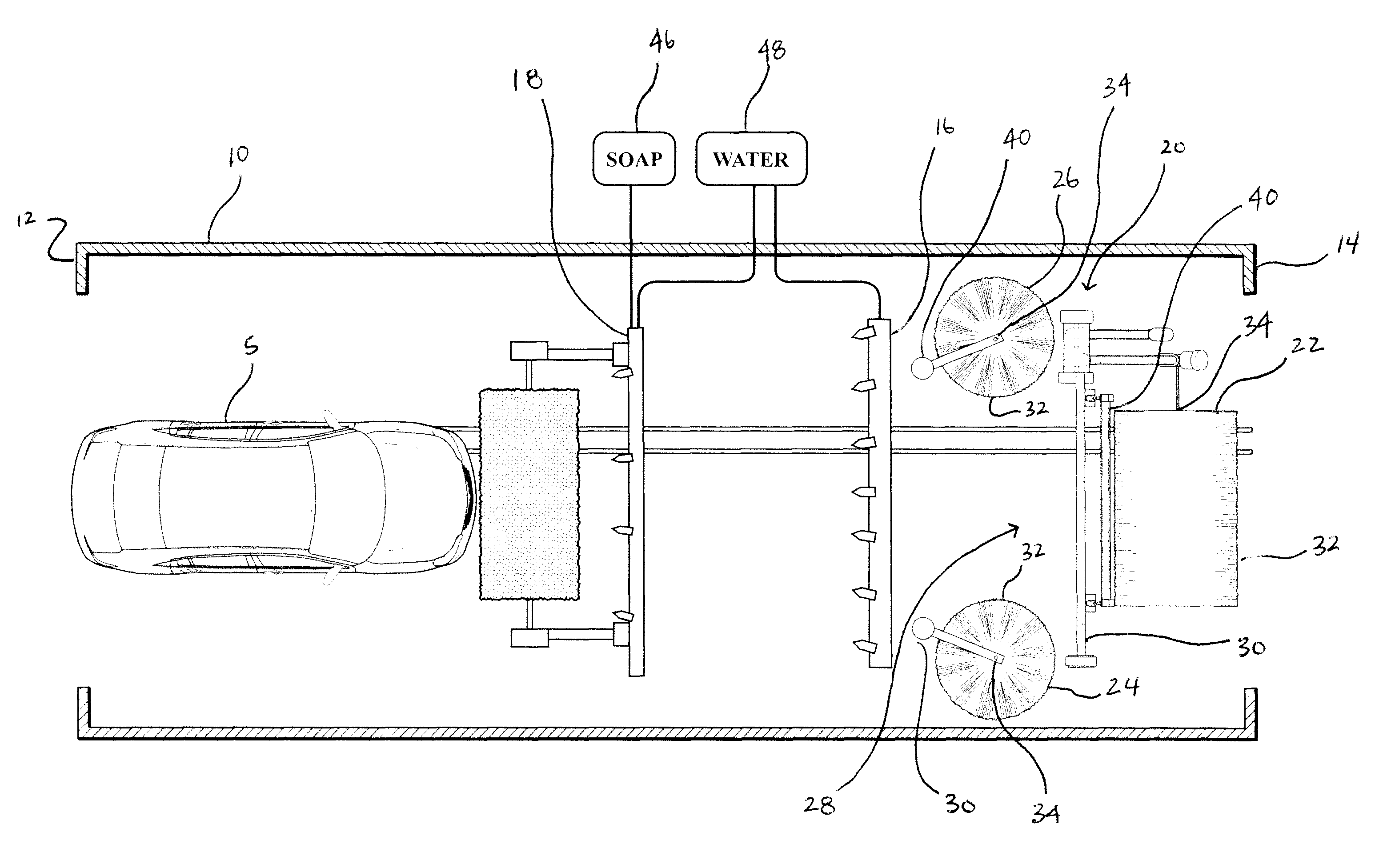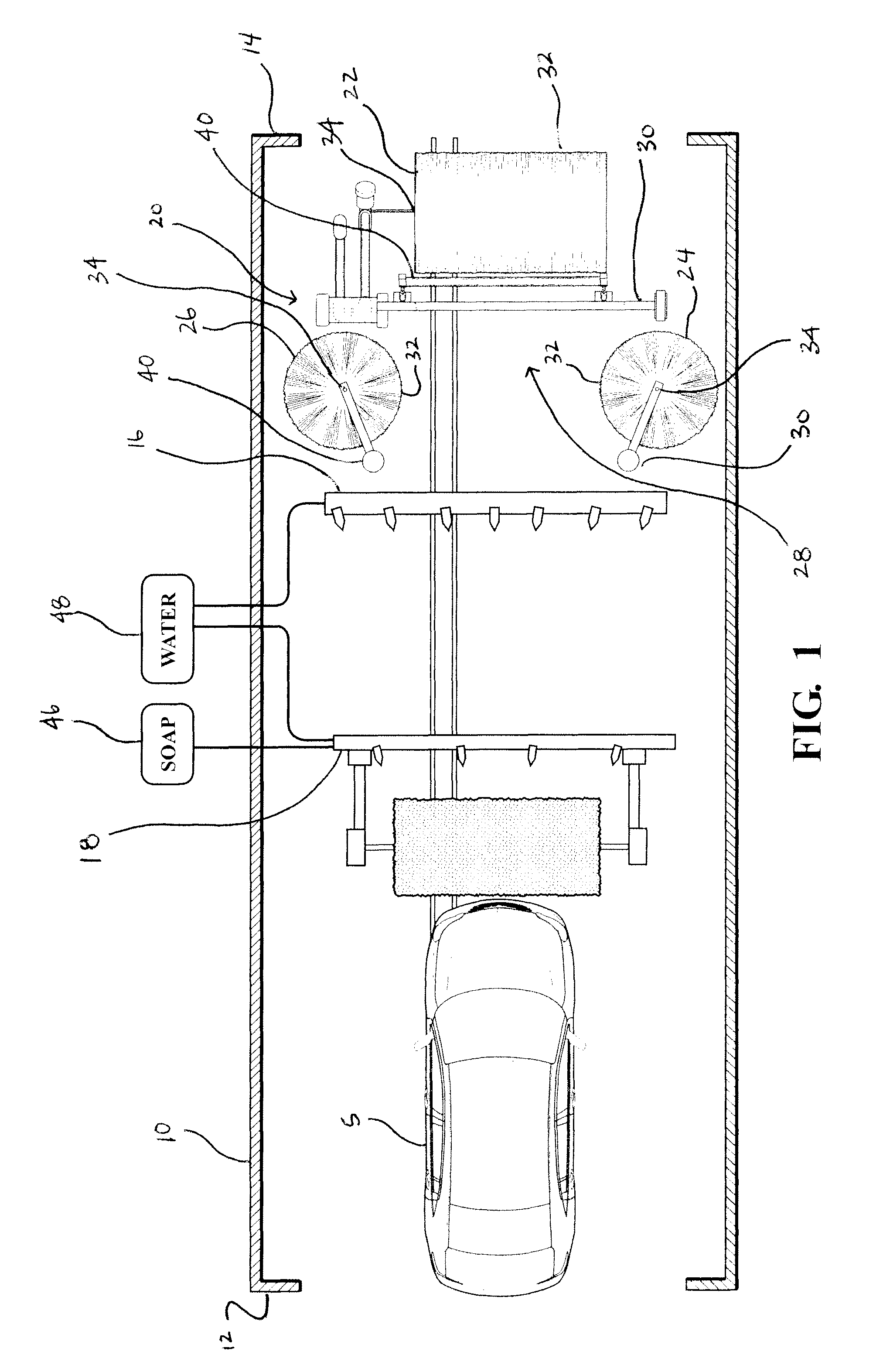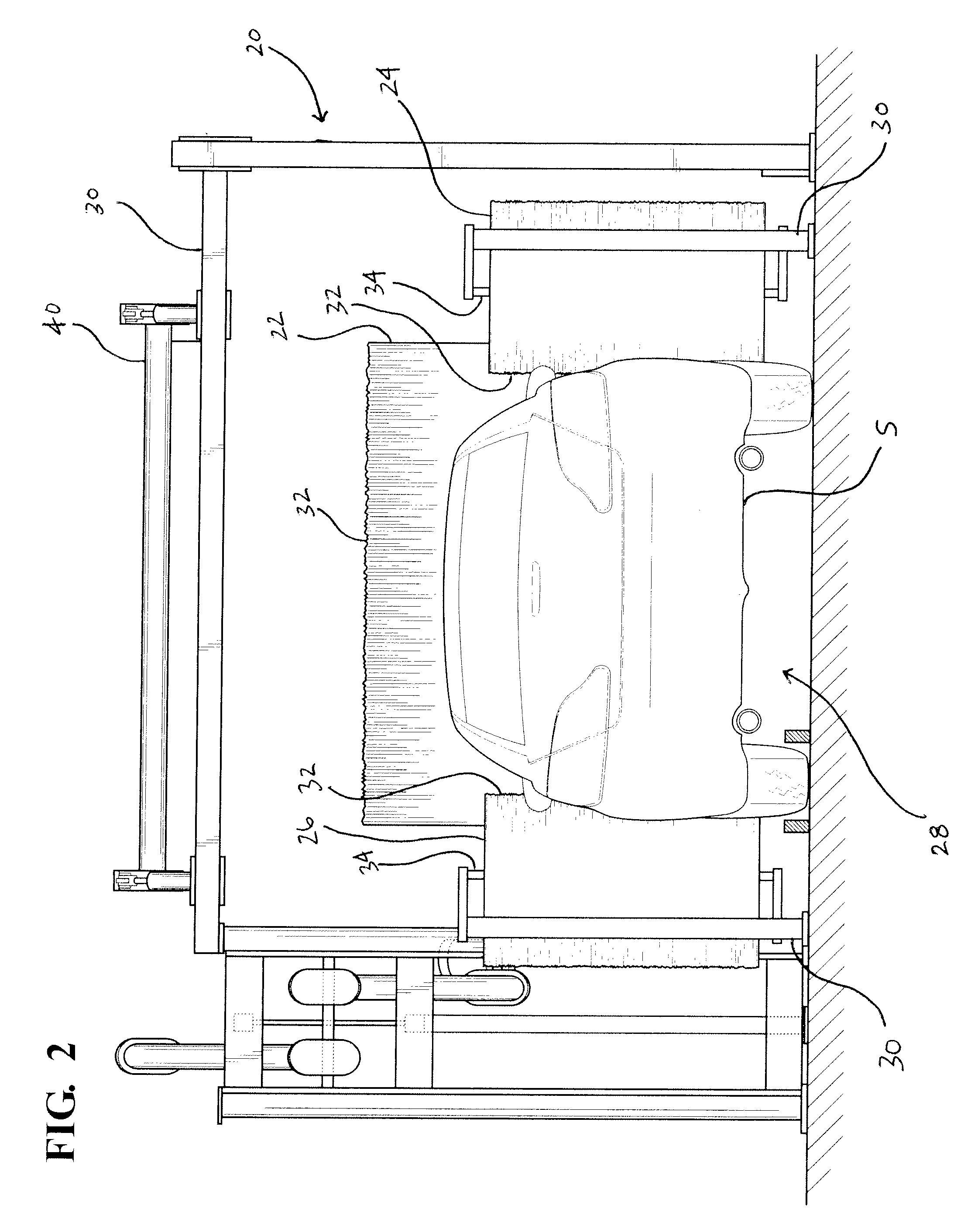Vehicle wash drying system
a technology for vehicle wash and drying station, which is applied in the direction of vehicle cleaning, drying machine with progressive movement, lighting and heating apparatus, etc. it can solve the problems of increasing the cost of the operator, and friction drying station not solving the insufficient drying problem, so as to reduce the saturation of drying material, increase the drying performance, and reduce the effect of drying material saturation
- Summary
- Abstract
- Description
- Claims
- Application Information
AI Technical Summary
Benefits of technology
Problems solved by technology
Method used
Image
Examples
Embodiment Construction
[0026]The present invention relates to a drying station for drying a vehicle exterior in a vehicle wash system. FIG. 1 schematically illustrates a vehicle wash system in accordance with the present invention. As shown, a vehicle 5 enters a facility 10 at an entrance end 12 and exits the facility at an exit end 14. Within the vehicle facility 10, the vehicle 5 is conveyed through various stations where it is subjected to certain vehicle treatment processes that make up the vehicle wash system. The vehicle treatment processes preferably includes a rinsing at a rinse station 16, a washing at a wash station 18, and a drying at a drying station 20. It will be understood that the preferred vehicle wash system can include any number of other processes, such as waxing, to which the vehicle may be subjected. Additionally, while the vehicle wash system is illustrated as a tunnel-type wash, it will be understood that the vehicle wash system can also be configured as part of a roll over-type wa...
PUM
 Login to View More
Login to View More Abstract
Description
Claims
Application Information
 Login to View More
Login to View More - R&D
- Intellectual Property
- Life Sciences
- Materials
- Tech Scout
- Unparalleled Data Quality
- Higher Quality Content
- 60% Fewer Hallucinations
Browse by: Latest US Patents, China's latest patents, Technical Efficacy Thesaurus, Application Domain, Technology Topic, Popular Technical Reports.
© 2025 PatSnap. All rights reserved.Legal|Privacy policy|Modern Slavery Act Transparency Statement|Sitemap|About US| Contact US: help@patsnap.com



